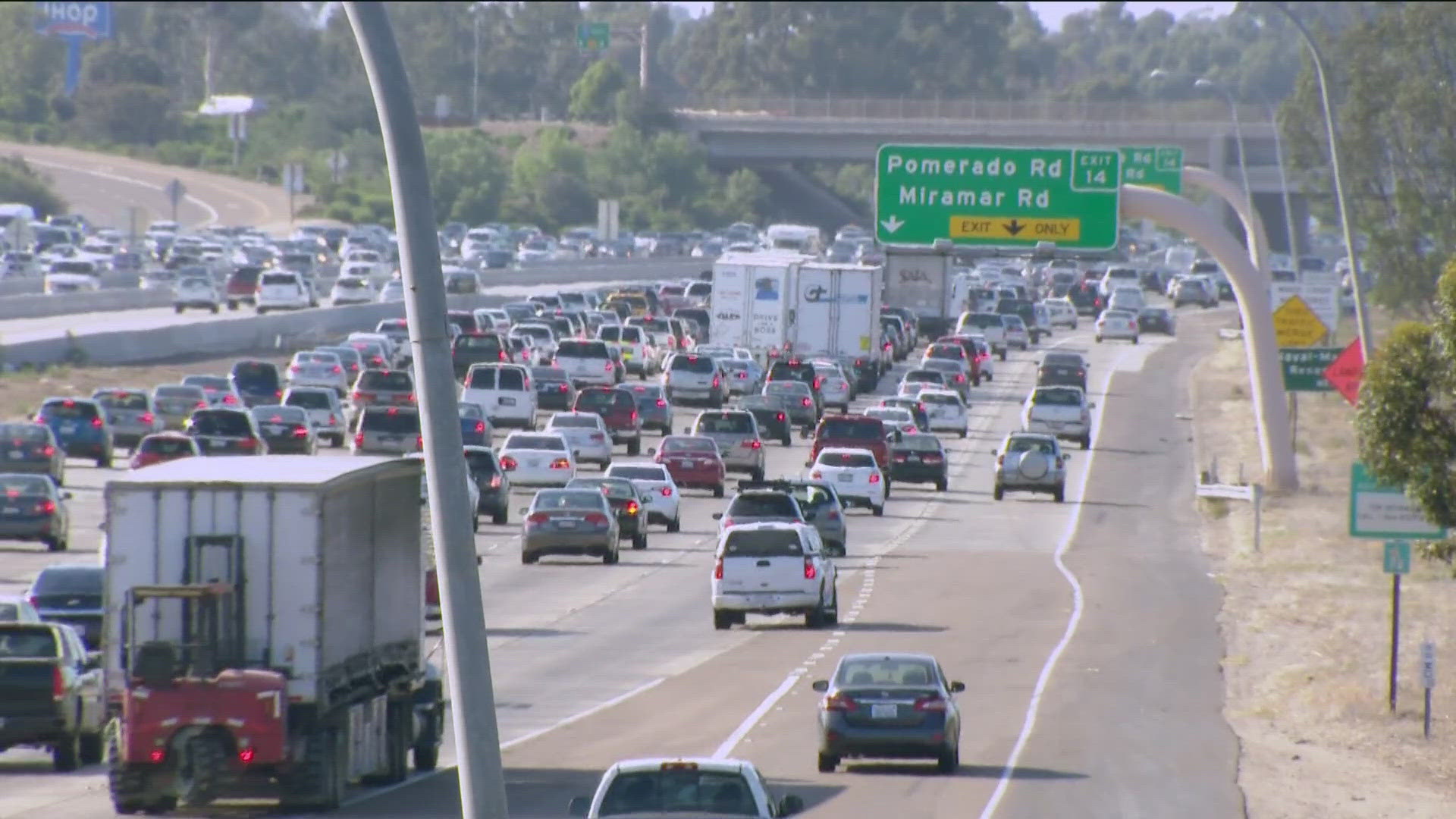SAN DIEGO — Before getting in the car for a summer road trip or heading home after a vacation, remember that heat waves such as the one in San Diego County affects vehicles, traffic and gas prices.
The biggest tip when driving in the heat is keeping vehicle maintenance up-to-date.
"The heat can really affect vehicles if the maintenance is not up to date, which is why we always tell drivers just to make sure to check your batteries, your tires, fluid levels," Anlleyn Venegas with the Auto Club of Southern California said.
Venegas said AAA expected to assist more than 185,000 California motorists and more than 800,000 nationwide over the nine-day Fourth of July travel period.
"It's really hard to predict roadside emergencies, which is why you should always have an emergency kit inside your vehicle," Venegas said.
In the emergency kit, AAA recommends extra water, snacks, jumper cables, a flashlight and extra batteries.
If your car breaks down, AAA said to try to exit the road and find a safe place to stop. If you see a car on the side of the road, slow down or move over.
"This is just so that they can have extra space to feel a little bit more safe and also to prevent those crashes. Unfortunately, we do see more crashes during the summer," Venegas said.
Another important factor is to make sure your car air conditioning is up and running. Venegas said it's more than a pleasant experience, it can help avoid fatigue and distracted driving.
Last week I participated in a hot car demo. I sat in a hot enclosed car with no air conditioning. In just two minutes the temperature inside went from 80 degrees to 110.
That's also a reminder to not leave pets or children inside a car alone in the heat, even for a few minutes.
Along with more car troubles, more cars are on the road in the summer months, especially around summer holidays. More cars means more demand for gas, which raises prices.
"During the summer we always pay more for gas historically, because we use that summer blend gasoline, which is more expensive to produce and to distribute," Venegas said. "But also there's there's more demand. We see that more people are driving, which means there's more demand, and that's always going to make gas prices go up."
WATCH RELATED: Beach goers trying to escape San Diego heat want to know what's being done to combat sewage crisis

